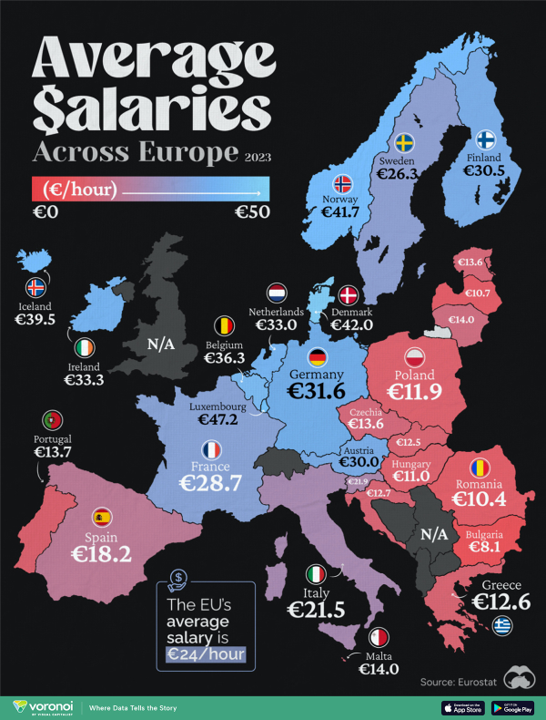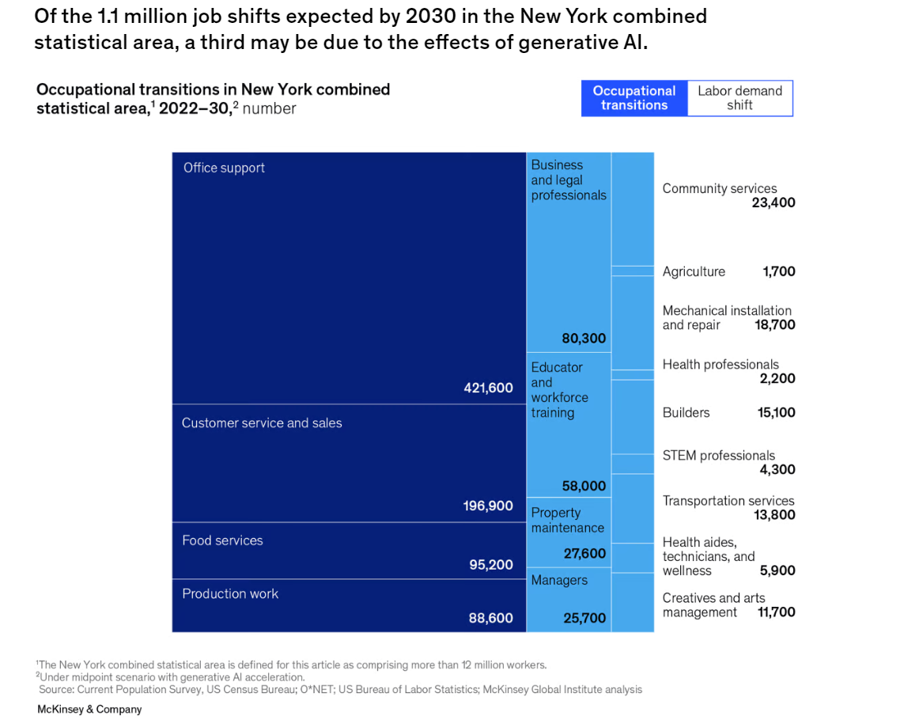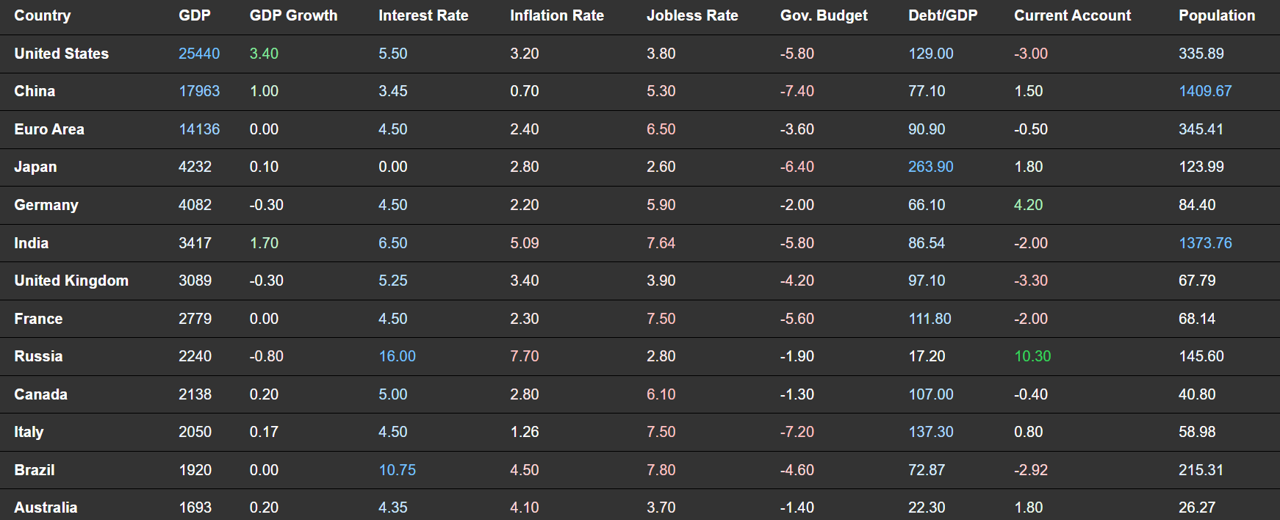Home > Wednesday Wisdoms: Newsletter > ⌛ Is this why you run out of time in your A level Economics exams?
Jump to Section:
⌛ Is this why you run out of time in your A level Economics exams?
Brexit import charges may mean rise in food prices, say trade groups
Summary
A Level Economics Questions:
Possible A Level Economics 25 Marker Question
Infographic of the Week

European Wage Landscape: An Overview of Average Hourly Salaries
Europe not only boasts some of the world's largest economies and a significant single-market area, but it also offers varied economic prosperity reflected in the average hourly wages across different countries. The heatmap visualization of average hourly salaries, derived from Eurostat data up to 2023, reveals a stark contrast between Northern and Western Europe and their Southern and Eastern counterparts. Luxembourg leads with the highest average hourly wage at €47, attributed to its status as the financial powerhouse and having the highest per capita GDP globally. Scandinavian countries like Denmark and Norway also top the list with wages around €42 per hour, while Bulgaria has the lowest at €8 per hour. This geographic wage disparity aligns with historical economic shifts and current differences in economic development, cost of living, and overall wealth.
Chart of the Week

The Implications of Generative AI on New York's Labour Market
The advent of generative AI is poised to significantly alter the labour landscape within New York by 2030, potentially impacting around 380,000 jobs. However, this transformation is not synonymous with job loss, as explained by senior partner Yael Taqqu and colleagues. Instead, generative AI is expected to enhance job roles, particularly in sectors such as customer service and office support, which could experience growth despite the technological shifts. While some occupations may undergo substantial transitions, the overall effect of generative AI on employment could be an evolution of job functions and the creation of new opportunities, rather than a reduction in job numbers. This shift underscores the dual nature of AI as both a disruptor and an enabler in the contemporary job market.
Macroeconomic Data

Whenever you're ready there is one way I can help you.
Emre Aksahin
Chief Learning Officer at Edgenie


